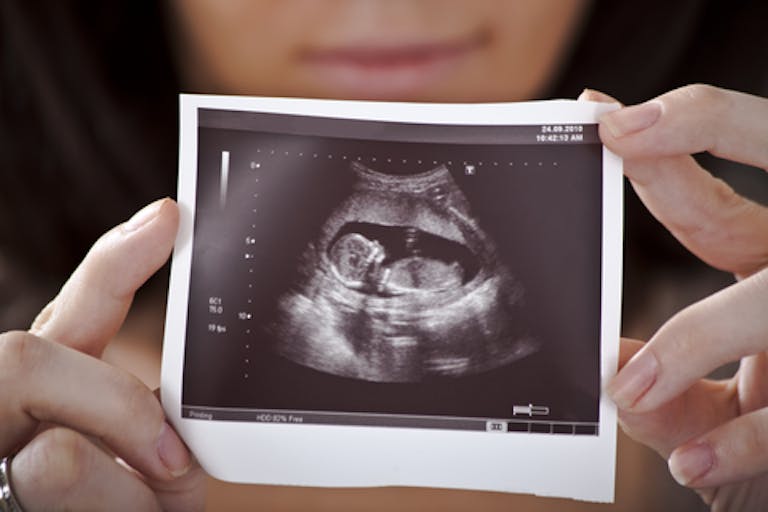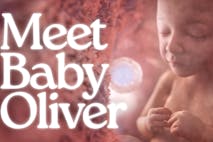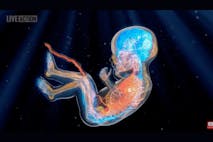Srsly ppl: @nytkeller nails truth about choice and abortion in column. Bottom line: "It's personal." So. Well. Said. keller.blogs.nytimes.com/2013/03/27/its…

“Self-anointed advocates for the unborn” need to stay out of abortion debate, says NYT
“Self-anointed advocates for the unborn” need to stay out of abortion debate, says NYT
The self-anointed advocates for the unborn have no inherent place in the matter. Nature entrusted the life of this new creature to its mother – not to lawyers or legislators – and it is between a woman and her conscience.
This statement comes from Bill Keller, a pro-abortion columnist for the New York Times who recently responded to a letter to the editor asking for Keller to share his rationale for supporting abortion “rights.”
Keller’s rationale comes from experience more than anything else. That’s something that we in the pro-life movement can appreciate, since we have movements like the Silent No More Awareness Campaign, which collect the testimonies of post-abortive men and women whose experiences speak volumes. Although Mr. Keller’s experience led him to a place of support for abortion (unlike those of Silent No More), pro-lifers are not about to slam a rationale that is based primarily on experience.
But that’s not to say that his column of March 27, 2013 was a good defense for abortion, because there’s no such thing. To get back to the excerpt at the beginning of this article, it seems imperative to point out that, while Keller acknowledges wholeheartedly that “[n]ature entrusted the life of this new creature to its mother,” he doesn’t make the logical follow-up conclusion that the new creature (the pre-born child) has any value. In fact, he goes on to conclude that “it is between a woman and her conscience [whether to abort].” Isn’t Keller omitting a huge premise when he concludes that abortion is a personal decision for the mother? What did nature entrust to her, again? Oh yes, “the life of this new creature.” So where does the life of this new creature play into the abortion decision? That is one question that seems to get dropped like a hot potato by Keller, and those who share his view.
One of fKeller’s compatriots, NARAL President Ilyse Hogue, heartily praised Keller’s piecemeal conclusion that although the unborn are entrusted to their mothers, their mothers alone (and anyone else they invite into the decision) have a say in what happens to these new lives:
This idea that mothers are the sole arbiters over the lives of their children is not a novel concept, but Mr. Keller couches it in much more genteel terms than others who share the view, like Salon.com contributor Mary Elizabeth Williams, who, much more transparently than Keller, acknowledges that abortion ends a life, but responds, “So what?”
The idea that someone other than God (or nature, however you see it) has sole dominion over the life and death of children is not new or rare. In China, the government claims this authority. In ancient Rome, the paterfamilias, or head of the household, had the right to determine whether his newborn children would be welcomed into the family or left in the hills to be ravaged by wild animals or succumb to the elements.
But in America – a country that is built on founding principles like the Declaration of Independence, which states that all men are entitled to the pursuit of life, the position that the unborn should exist only when someone else deems them worthy to do so does not seem to line up with our values. And it is those of us who recognize this fact who Mr. Keller says are missing the mark.
Calling us “self-anointed advocates for the unborn,” Keller insists that we have no place in the matter. But we have to ask: would Declaration-author Thomas Jefferson have agreed with you? Would Mother Teresa – one of the self-anointed advocates you so readily condemn – have agreed with you? Logically, they could not. They could not hold one truth (that life deserves protection) and another (that a woman should have the right to end the life of her child) at the same time.
So, Mr. Keller, you may have the support of abortion advocates like Ilyse Hogue, but when you bash the self-anointed advocates of the unborn, and assign the issue of abortion solely to personal testimonies, keep in mind that we have our own arsenal of testimonies to affirm our cause, and much more besides.
Live Action News is pro-life news and commentary from a pro-life perspective.
Contact editor@liveaction.org for questions, corrections, or if you are seeking permission to reprint any Live Action News content.
Guest Articles: To submit a guest article to Live Action News, email editor@liveaction.org with an attached Word document of 800-1000 words. Please also attach any photos relevant to your submission if applicable. If your submission is accepted for publication, you will be notified within three weeks. Guest articles are not compensated (see our Open License Agreement). Thank you for your interest in Live Action News!
Read Next

Illinois bishops file amicus brief in opposition of abortion referral mandate
Cassy Cooke
·More In Media

Media
'Meet Baby Oliver': A Scientific Journey Into Life’s First Days
Cassy Cooke
·
Media
Live Action's 'Beyond Ultrasound' video dives deeper into human prenatal development
Cassy Cooke
·
Human Interest
Conceived in Rape: A mother and daughter tell their powerful story
Kelli Keane
·
Analysis
Sex-ed group likens 'Baby Olivia' video to horror film 'Rosemary's Baby'
Sheena Rodriguez
·
Analysis
WATCH: Rape survivors and people conceived in rape meet 'Face to Face'
Cassy Cooke
·More From Lauren Enriquez

Human Interest
Amazing sculptures in Middle East show ‘miraculous journey’ of life in womb
Lauren Enriquez
·
Activism
Webcast will reveal why abortion industry is panicking over CMP footage
Lauren Enriquez
·
Activism
Want to stop Planned Parenthood? Do these 10 things
Lauren Enriquez
·
Activism
CLOSED: New Mexico abortion mill shuts down after pro-lifers pray
Lauren Enriquez
·
Meet Brian Fisher, President and Co-Founder of Human Coalition
Lauren Enriquez
·